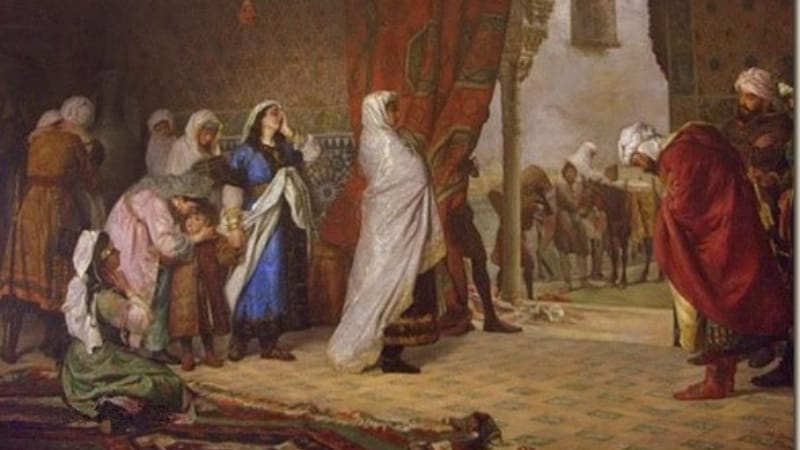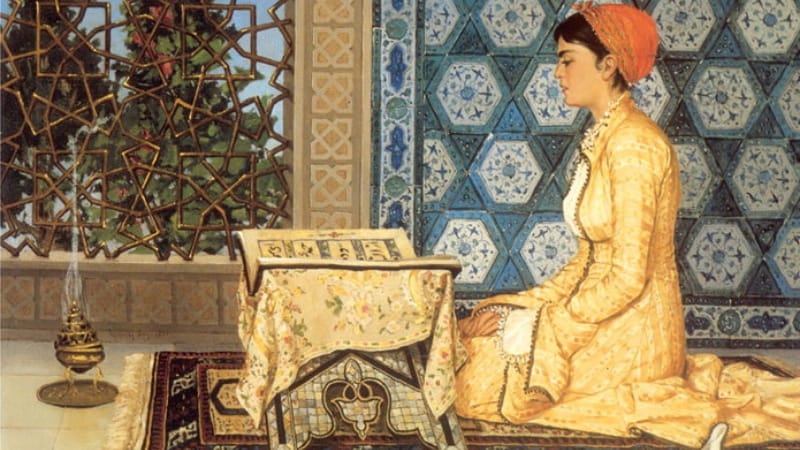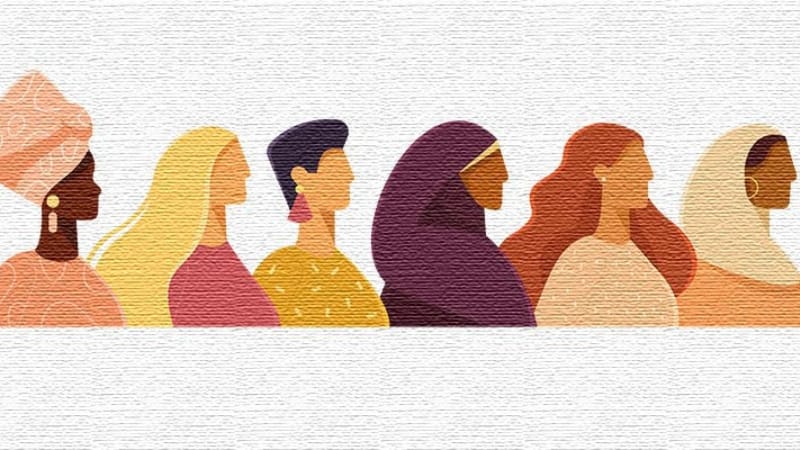Islamic Feminism: Key Figures, Beliefs, and Misconceptions

Across the world, many Muslim women are standing up and speaking out, not against Islam, but from within it.
We use our faith to challenge the ways our religion has been misused by patriarchy to control women.
We're studying, questioning, and pushing for change, because we believe Islam supports justice and equality regardless of gender.
This is Islamic feminism. And it’s not a new idea.
It’s a growing movement led by Muslim women who love their faith and believe they deserve better.
One powerful voice of Islamic feminism is Nawal El Saadawi, a famous Egyptian writer, doctor, and activist.
People often misunderstood her. Some even accused her of being against Islam.
But in truth, she was fighting against how Islam was being used unfairly by men.
Table of Content
What Is Islamic Feminism?
Islamic feminism is a movement that pushes for gender equality based on Islamic teachings.
It doesn’t want to reject religion, it wants to reform how women are treated within it.
Unlike secular feminism, which often separates itself from religion, Islamic feminism works within the framework of Islam to advocate for women’s rights.
It believes that Islam’s true teachings support fairness, respect, and equality for all, which of course, includes women.
It’s important to understand that Islamic feminism is not a contradiction.
It’s about going back to the core values of Islam, which are rooted in justice, compassion, and equity for everyone, regardless of gender.
There’s a common misunderstanding that feminism means being anti-religion, or that Islam inherently oppresses women.
Islamic feminists challenge these ideas, showing that Islam can be a source of empowerment for women.
They argue that many of the cultural practices that harm women today are not rooted in Islam, but in misinterpretations or manipulations of the faith.
Who Is Nawal El Saadawi?
Nawal El Saadawi was a powerful voice for women’s rights in Egypt and beyond.
She was not only a feminist but also an author, physician, and activist who dedicated her life to challenging the oppression of women.
But one of the biggest misconceptions about her is that she was against Islam.
In reality, El Saadawi never attacked Islam itself. Instead, she criticized how patriarchal systems distorted and manipulated Islam to control and suppress women.
Throughout her life, El Saadawi faced harsh consequences for speaking out. She was exiled, censored, and publicly condemned.
Some even wrongly labeled her an atheist or a heretic, simply because her views didn’t align with the conservative interpretations of Islam.
But her message was clear.
She believed that Islam promotes justice and equality, and that those who misuse religion to justify oppression were the real problem.
El Saadawi didn’t want to abandon religion; she wanted to challenge those who twisted religious teachings to keep women in unequal positions.
She believed that education, critical thinking, and self-questioning were powerful tools that could free people from oppressive systems, including those that misuse Islam.
- Nawal El Saadawi
This quote captures her belief that true Islam supports women’s rights, but it requires careful study and understanding, not blind acceptance of harmful traditions.
Some of her famous works include "Women and Sex", "The Hidden Face of Eve", and "Women at Point Zero."
How Patriarchy Distorts Religious Equality

Islam, at its core, promotes fairness, compassion, and justice.
But in many parts of the world, patriarchal systems have twisted these values, using religion to keep women in unequal positions.
Nawal El Saadawi was one of the strongest voices calling this out.
1. Exclusion from Public Life
In many Muslim societies, women are pushed into private spaces, expected to stay at home and focus on family.
While men dominate public roles in politics, religion, and the economy.
El Saadawi criticized this imbalance, saying it wasn’t just unfair, it was also un-Islamic.
She often reminded people that early Islamic history was full of strong, active women.
For example:
- Khadija, the Prophet Muhammad’s wife, was a successful businesswoman.
- Aisha was a scholar and even led troops in battle.
- These women were leaders and teachers, not silent bystanders.
2. Selective Interpretation of the Quran
Some verses in the Quran, like Surah 4:34 (“Men are the protectors and maintainers of women”), are often used to justify male authority and demand women’s obedience.
However, many other verses promote mutual respect, kindness, and fairness between men and women.
Unfortunately, these parts are often ignored.
El Saadawi and other scholars argued for a more balanced and thoughtful reading of the Quran.
One that looks at the whole message, not just the parts that support patriarchy.
3. Legal & Social Barriers
In some Muslim countries, laws make it hard for women to make decisions without a male guardian.
This includes traveling, getting a job, or even going to school.
Also, inheritance and divorce laws are often unequal, even though Islam gives women financial rights and recognizes them as individuals.
El Saadawi believed these legal restrictions were tools of control, not true reflections of Islam.
So, she called for change.
Not to break away from religion, but to return to its true roots.
Role Models of Islamic Feminism: Women in Early Islam

One of the strongest arguments against the idea that Islam limits women comes from history itself.
In the early days of Islam, women were leaders, thinkers, and role models, far from the passive image often seen today.
Khadija 🌹
Khadija was the first wife of Prophet Muhammad and one of the most respected women of her time.
- She was a successful businesswoman who ran her own trade business.
- She was also the first person to accept Islam, supporting the Prophet both emotionally and financially.
- Her strength and independence are a clear reminder that Islam began with the support of a powerful woman.
Aisha 🌻
Aisha, another wife of the Prophet, was known for her intelligence, sharp memory, and leadership skills.
- She narrated over 2,000 Hadiths (sayings of the Prophet).
- She was a teacher of men and women, and many companions of the Prophet learned from her.
- She even played a role in political events and led an army, showing that women were not pushed to the sidelines.
Fatima 🌷
Fatima, the Prophet’s daughter, is deeply respected in both Sunni and Shia traditions.
- She’s seen as a spiritual role model, known for her devotion, strength, and compassion.
- Her legacy continues to inspire Muslim women worldwide.
These Muslim women were active, educated, and respected, which challenges today’s narrative that Islam expects women to be silent or submissive.
Instead, their stories prove that women were always meant to play meaningful roles in public, religious, and family life.
Feminist Ijtihad: Reclaiming Religious Authority

One powerful tool in the movement for gender equality in Islam is ijtihad: a term that means independent reasoning.
Traditionally used by scholars to interpret Islamic law, today it’s being reclaimed by women to challenge interpretations that have long excluded or oppressed them.
What is Feminist Ijtihad?
Feminist ijtihad is when Muslim women scholars and activists study the Quran and Hadith with fresh eyes, asking important questions, exploring historical context, and seeking out the deeper ethical messages of Islam.
El Saadawi’s Call for Reform
Although Nawal El Saadawi wasn’t a traditional Islamic scholar, her work pushed for a similar kind of critical reflection.
She believed:
- Education is key to understanding and questioning oppressive systems.
- Critical thinking allows believers to see the difference between religion and the way it’s been distorted.
- Reform must come from within; by Muslims, for Muslims.
She argued that Islam, when read in its full ethical depth, supports the rights and dignity of women.
Her goal, and the goal of many Islamic feminists, was never to “westernize” the religion, but to return to its true spirit.
Through feminist ijtihad, women are not stepping outside their faith.
They are stepping deeper into it to reclaim their rightful place as leaders, thinkers, and equals in the Islamic tradition.
Modern Voices of Islamic Feminism
Today, many Muslim women are continuing the work of reform, challenging outdated interpretations of Islam and calling for justice from within the faith.
These women are scholars, thinkers, and activists who love their religion but refuse to accept inequality as part of it.
Here are four leading voices:
1. Amina Wadud
An American scholar and one of the most well-known figures in Islamic feminism.
She made history in 2005 by leading a mixed-gender Friday prayer, breaking deep-rooted norms about women in religious leadership.
Her work focuses on showing that the Quran supports equality and that women’s voices belong in spiritual spaces.
2. Leila Ahmed
An Egyptian-American scholar known for her research on women and gender in Islam.
She explores how cultural and historical forces shaped the way Islam is practiced today, especially when it comes to women.
Her book "Women and Gender in Islam" is a landmark work in understanding the difference between faith and patriarchal tradition.
3. Asma Barlas
A Pakistani-American academic who digs deep into Quranic texts.
She argues that the Quran itself is not patriarchal, but the way it’s been interpreted by male scholars often is.
Barlas shows that the spirit of the Quran is rooted in justice, not male authority.
Asma Barlas' speech at the Islam and Woman conference in Turkey:
4. Ziba Mir-Hosseini
An Iranian legal anthropologist who works at the crossroads of Islamic law and gender equality.
She collaborates with scholars and activists to reform family laws in Muslim-majority countries.
Her work helps bridge gaps between religious values and universal human rights.
These women are not outsiders looking in, they are deeply rooted in the Islamic tradition.
What they want is not to reject Islam, but to reclaim it from patriarchy, and return it to its original values of justice, compassion, and dignity for all.
Dr. Ziba Mir-Hosseini's definition of Islamic feminisim:
Final Thoughts
Islamic feminism isn’t about fighting against faith, it’s about reclaiming it from patriarchy.
It’s a movement led by Muslim women who love their religion and believe that Islam stands for justice, equality, and dignity.
Nawal El Saadawi was one of those bold voices.
She was misunderstood, criticized, and even exiled.
But she never stopped asking hard questions and speaking up for women’s rights.
Her legacy reminds us that true reform comes from within and that silence only helps those in power.
What can you do to support Islamic feminism activism?
1. Listen to Muslim women scholars.
2. Read their stories and their scholarship.
3. Challenge injustice, but don’t confuse it with belief.
Because when we separate patriarchy from religion, we finally see that faith and feminism can walk hand in hand.

